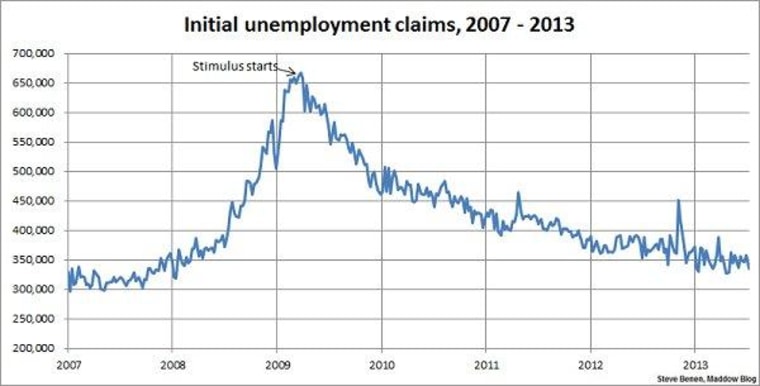Last week's report on initial unemployment claims was unexpectedly discouraging, making the good news this morning that more reassuring.
The number of people who applied for regular state unemployment-insurance benefits dropped 24,000 to 334,000 in the week that ended July 13, hitting the lowest level of new claims since early May, signaling a slower pace of layoffs, the U.S. Department of Labor reported Thursday. Economists polled by MarketWatch had expected initial claims to fall to 341,000 from an original estimate of 360,000 in the prior week. However, it's difficult to precisely measure claims this month because of distortions from events such as annual auto plant shutdowns and the July 4 holiday, they said.... The four-week average of initial claims, a less volatile gauge, declined 5,250 to 346,000.
To reiterate the point I make every Thursday morning, it's worth remembering that week-to-week results can vary widely, and it's best not to read too much significance into any one report.
In terms of metrics, when jobless claims fall below the 400,000 threshold, it's considered evidence of an improving jobs landscape, and when the number drops below 370,000, it suggests jobs are being created rather quickly. We've been below the 370,000 threshold 28 of the last 31 weeks, and below 350,000 in 10 of the last 15 weeks.
Above you'll find the chart showing weekly, initial unemployment claims going back to the beginning of 2007. (Remember, unlike the monthly jobs chart, a lower number is good news.) For context, I've added an arrow to show the point at which President Obama's Recovery Act began spending money.
